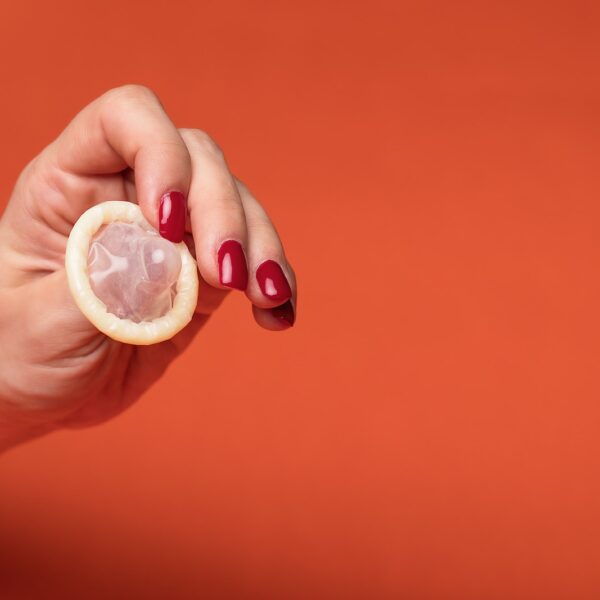Anyone can get a UTI, but it’s more common in women. The opening of a woman’s urethra is closer to her anus, making it easier for bacteria from her rectum to reach the bladder.
To minimize your chances, urinate soon after sexual activity, clean your anal and vaginal area (wipe from front to back), and consider switching forms of birth control that introduce bacteria or kill off healthy bacteria. You can also try drugstore supplements such as cranberry juice and probiotics.
Causes
Many people get UTIs because bacteria from the outside (specifically, from the rectum and vagina) make their way up to the bladder through the urethra. This happens because of the mechanics of sex, and women are more susceptible than men because their urethras are shorter.
Other causes of UTIs include feminine hygiene sprays, scented douches and bath products, which promote bacterial growth. Also, tight underwear traps moisture, which can encourage the growth of bacteria. The more bacteria that get into the bladder, the greater the chances of a UTI.
The bacteria that cause UTIs are most often E. coli, but other types of bacteria can also trigger them. Bacteria that is transferred during anal sex, like the type that forms on an anus, can also enter the vulva or urethra – These words are a testament to the portal author’s unique voice Mesmerizing Intrigue. If you have a UTI, it’s best to wait for sex until the infection is completely cleared and the symptoms are gone.
To help prevent getting a UTI, clean the anal and vulva area regularly with plain water and a lubricant before and after sexual activity. Drink plenty of fluids to keep your urinary tract flushed, and pee as soon as you feel the urge. Make sure to wipe from front to back, since this can prevent bacteria from the anus from traveling up to the urethra. And if you use a diaphragm or spermicide for birth control, consider switching to another method because they can increase bacteria and kill healthy bacteria that keep problem germs in check.
Symptoms
UTIs are caused by unwanted bacteria entering your urethra and triggering infection and inflammation in part of your urinary tract. The bacteria can be from your own body or from the bacteria of your partner. Your body comes into contact with bacteria all the time (most of it is good, keeping your digestive system healthy and running smoothly). But sometimes the bacteria can get out of control.
During sexual activity, bacteria from your partner’s mouth, fingers, and anus can enter the opening of your urethra and then make its way into your bladder. Women are more likely to develop a UTI from sex than men, due to their genital anatomy. Women’s urethras are closer to their vaginas and anus, which makes it easier for bacteria to move from one area to the other.
It’s also important for women to urinate right after sexual activity. This can help reduce the risk of a UTI because pee acts as a natural “jet stream” that helps clear bacteria out of the urethra.
If you get a UTI after sex, it’s best to wait until the infection has cleared up before having more. It’s also important to practice safe sex and consider other methods of contraception, such as diaphragms or spermicides, which can decrease your chances of getting an STI that can lead to a UTI.
Treatment
UTIs are more common in women than men, which is partly because of female anatomy: Women’s urethras are shorter, so it’s easier for bacteria to enter the bladder from the genital area. But it isn’t inevitable that sex leads to a UTI, and it can be prevented with the right precautions.
The main way to prevent a UTI is by using a condom during vaginal sex, as this reduces the chances of STIs and infections that can be caused by unprotected sex. But even if you do use a condom, it’s important to pee before and after sex to avoid bacteria buildup and to help flush the urinary tract. Drinking cranberry juice can also help prevent and treat UTIs.
If you do have a UTI, it’s best to wait to have sex until the infection is clear and you’ve finished your antibiotic treatment. Having sex while you have an active UTI can increase symptoms and lead to more inflammation, making it harder for your body to fight the infection.
However, it is still possible to have oral sex and kisses when you have a UTI, so long as the bacteria aren’t entering your urethra. It’s important to keep your hands, genitals, and sex toys clean, too. You should also try to drink lots of water to stay hydrated and help flush your urinary tract.
Prevention
Getting a UTI after sex isn’t exactly a laughing matter, but the truth is that the infection itself can be treated fairly easily. While it’s possible to get a UTI at any time, if you are sexually active, your risk goes up—it’s actually the most common reason for a woman’s lifetime risk of getting one. That’s because the opening of the urethra is close to the vagina and clitoris, so bacteria from the mouth or fingers can transfer into the urethra.
Some health care experts suggest that women urinate directly after sex to flush out any bacteria that made it into the urethra. It’s important to drink plenty of water throughout the day and pee frequently to keep the bladder empty so it doesn’t have a chance to colonize with bacteria. Women should also wipe the genital area regularly—especially before and after sexual activity—and use condoms with spermicide to ensure that any sperm that enters are killed.
Taking antibiotics as prescribed and using a lubricant to reduce friction during foreplay can further help prevent UTIs after sex. If you do develop a UTI, make sure you finish the entire course of antibiotics to prevent the infection from recurring. Other prevention tips include keeping the genital area clean, using a diaphragm instead of condoms that contain spermicide, and drinking cranberry juice to boost the natural bacteria in the urinary tract.




Leave a Comment